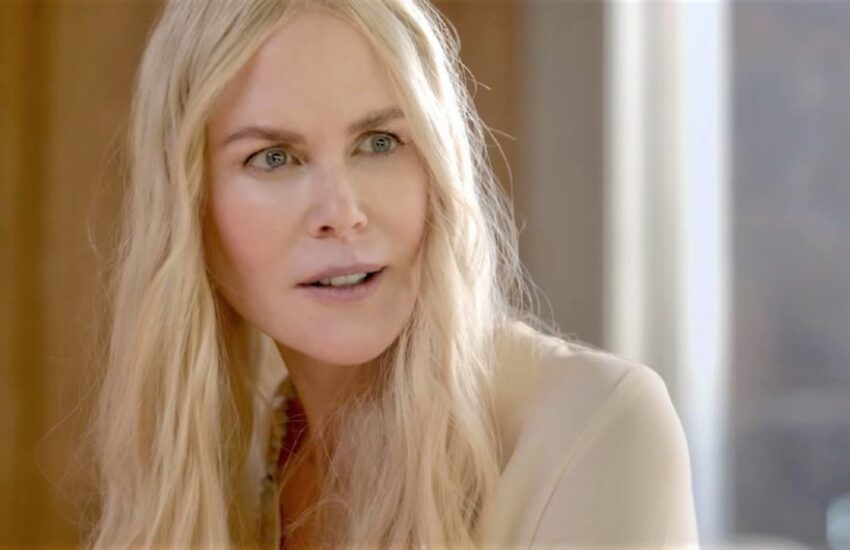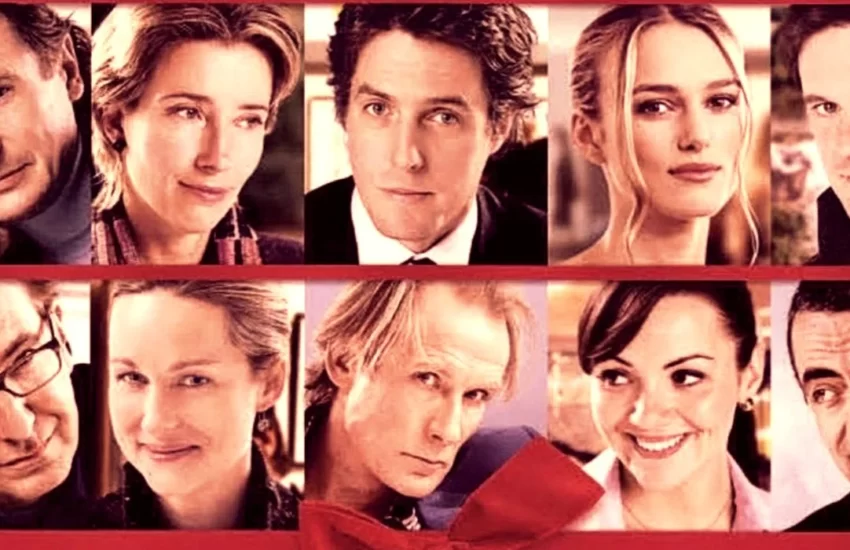Stuff To See :: Part One
It really does beggar belief sometimes how with each passing day, the world manages to find another way to supersede its previously attained level of outright shittiness. Granted, the pandemic can still claim responsibility for some of the more heinous developments, however it seems that with every step we take towards something resembling normality, another dreaded pall re-emerges from pasts both recent and not-so-much to diminish our sense of progress. More recently, in what appears to be a drawn-out joke of darkly cosmic irony dispensed by fate-or-whatever, the larger stories outside of the ongoing COVID crisis happen to be focused on the mistreatment of women just in time for International Women’s Day (and Mother’s Day, if you are based in the UK anyway). Or it could just be that society at large is finally realising how shockingly pervasive misogyny really is in both the media we consume and the everyday lives we lead.
Between a couple of documentary films being broadcast focusing on both Britney Spears and Caroline Flack, two of the more tragic public figures undone by the specific pressures commonly inflicted upon female celebrities for their entire careers, we have also bore witness to the Duchess of Sussex bravely offering her truth of the mental anguish she suffered for being a woman of colour marrying into one of the, shall we say, pastier dynasties of the world to either derisive shrugs or hostile remonstrations from the upper echelons of the UK press.

Thereafter two more distressing stories emerged, one involving a YouGov poll finding that 97% of women in the UK claim to have been sexually harassed by men and the other concerning the harrowing fate of Sarah Everard. Sadly, even these sorry events cannot escape the tone-deaf enablers among us from offering their precocious insights into how and why they may have occurred, all too keen to return to “normality” and continually blame victims rather than not have to think too hard about how we can make the world safer. It is not enough just to simply say that “she should have got a cab” or “she should have at least told someone”, you tactless morons; maybe try blaming the perpetrators for what they did to these people and what motivated them to do these horrible things instead?
The only welcome caveat to all this is how it often helps to bring certain aspects of new media into sharper focus when viewed in parallel with current events. One of the most mind-fuckey examples that I can remember of this happening was in 2016 when Disney’s racial-profiling-allegory/billion-dollar-megahit Zootropolis did well to include a fluffy-haired antagonist attempting to govern a progressively multicultural world through old-school prejudice reinforced by fear and misinformation, only to succumb to the follies of fiction by having said evildoer actually get convicted and punished for their crimes. Presently, it is with regards to two films currently streaming on Netflix UK concerning a disparate band of teenage friends, each essaying commonly felt experiences of female teenhood that still manage to feel somewhat revelatory thanks to their contrasting approaches to the material.
Stuff To See – Part One: Moxie (Paper Kite Productions), Rocks (Fable Pictures)

Outwardly, Moxie and Rocks would appear to have little in common, despite both featuring a vibrant cadre of teenage women navigating their way through secondary education with a particular focus on a lead character whose world begins to unravel just when they are about to make formative decisions about their lives beyond high school. Moxie pays its dues towards other teen-themed movies from the US, with all the bright colours found in its production and costume design, snappy editing and wall-to-wall soundtrack cues helping to complement the confident performances of its young cast as it satirizes the same social hierarchies that apparently dominate every North American high school (in the movies anyway). Rocks takes on a more naturalistic approach, reminiscent of the work of Mike Leigh in how director Sarah Gavron and writers Theresa Ikoko and Claire Wilson organically shape the film’s narrative trajectory around the marvellous chemistry of its young cast, lowering the dramatic scale to focus on a smaller bittersweet story that ends up feeling more universal. What both films do share is a strong sense of empathy for each of its protagonists, one which they utilise in different ways to offset typical set-ups and conventions found in this genre to varying degrees of success.
Adapted from Jennifer Mathieu’s 2015 novel, Moxie specifically tells the story of student Vivian, a well-read wallflower who transforms into a feminist rebel when new student Lucy arrives and immediately calls out the toxic masculinity that dominates the school halls, its biggest champion being football team captain/odious slimeball Mitchell. When a list delegating specific female students into various categories of degradation is published on social media by Mitchell and his “bro’s”, Vivian is inspired to create a fanzine in the style of her mother’s beloved vintage Riot Grrl memorabilia that champion her undermined classmates, choosing to remain anonymous as the rest of the school breathlessly postulates as to who could possibly be holding the establishment to account over its clear predilection for letting its male student population get away with the kind of transgressions that their female counterparts cannot. Revelations are unearthed and confidences are betrayed along the way, threatening to upend Vivian’s sense of perspective and purpose as well as her relationships with her family and friends all while trying to keep her rebellious alter-ego secret from everyone, especially the prudish Principal Shelly and an increasingly hostile Mitchell.
For those hoping that director Amy Poehler would deliver a raucous companion piece to her frequent collaborator Tina Fey’s screenwriting debut, 2004’s era-defining Mean Girls, Moxie will leave them disappointed. Absent of that film’s highly quotable mean-spiritedness, Poehler imbues Moxie with a refreshing earnestness by recognising that some of the themes being explored here go beyond typical teen-comedy tropes of humiliation and slapstick. It can be argued that even at nearly two hours long, Moxie skimps on quite a few story beats and developments among its formidable ensemble, notable oversights including one featuring a trans student being continually mis-gendered by the faculty that is so barely etched out you would be forgiven for missing it completely and a dark twist in the third act that raises the stakes only to end up resolving itself far too neatly. Despite all this, there is an admirably moving quality in how inclusive the whole project feels though, affording its diverse cast enough moments to register some sympathy for when the more dramatic scenes take precedence.
Even if there are shades of a white-saviour narrative as far as Vivian’s character is concerned, at least the film is bereft of the seen-not-heard tokenism that normally permeates throughout this genre in its casting people of colour to highlight issues rather than merely use them as window-dressing, earning points for at least addressing the systemic racism and misogyny often found in the education system. All of which is leavened further by a game cast, with Poehler’s proven comedic mettle helping to elicit bright performances from her younger performers, particularly Alycia Pascual-Peña as Lucy and Nico Haraga as Vivian’s love-interest Seth, who may go down as one of the most adorably considerate boyfriends in teen movie history. It may be shy on laugh-out-loud jokes and feel a little workmanlike in terms of filmmaking style, but Moxie’s aura of beleaguered sweetness sets it apart from more cynically minded fare of its ilk, which is enough to warrant a recommendation. And at least the constant stream of pop songs on the soundtrack here mostly consists of Riot Grrl anthems from the likes of Bikini Kill and Sleater-Kinney, which are always awesome to hear.
AlycOn the other side of the Atlantic, Sarah Gavron’s Rocks continues to cast its own low-key spell over viewers, its considerable charms having already heralded multiple critical garlands on its initial release and since converting those into some serious industry awards buzz, racking up an impressive seven nominations for this year’s BAFTA awards as well as winning the Best Film prize at the British Independent Film Awards. Set in East London, the film follows the increasingly emotional trials of its title character, a bright and charismatic fourteen-year-old who is forced into caring for her younger brother after their mentally unstable mother abandons them, using what limited resources she can get to evade social services and prolong their separating her from her sole family member, all while trying to maintain her typical cocksure bravado among her concerned friends, teachers and neighbours, notably her best friend Sumaya.
In less intelligent and compassionate hands, what transpires onscreen would have felt exploitative, but thankfully Gavron and her team tap into a warm energy that brings Rocks to vivid life without resorting to cheap melodramatic tricks. Conceiving the main plotline out of extensive acting workshops after assembling the core cast from thousands of open auditions, Gavron and her screenwriters assemble something that feels vital and familiar, tempering the more tragic moments with an understated naturalism that proves much more affecting than any relentless gauntlet of working-class misery characteristic of more broadly realised kitchen-sink dramas. Though the dramatic stakes rise formidably as the film plays out, each narrative progression feels convincing and unforced, unflinching but never at any point sensationalizing enough to make the developments feel cheaply manipulative thanks to the rich empathy extended to its characters from the filmmakers and cast.
What leavens Rocks above other coming-of-age dramas most though is the irresistible rapport between its young performers, who despite not having any experience with onscreen acting take to semi-improvising their way through each scene like consummate professionals, as director of photography Hélène Louvart’s fluid camerawork maintains a tight focus in capturing all the giddy energy that bubbles throughout the group scenes without feeling intrusive. Ultimately, Rocks is about the power of female friendship and its ability to console and offer refuge to those who need it regardless of their individual background, a sentiment that should not feel as poignant as it does these days, but thanks to the world outside it sadly is. And though she has collected plenty of notices already, it does bear repeating just how wonderful a find Gavron has made in lead actress Bukky Bakray, carrying the whole film effortlessly with presence to spare and hardly hitting a single false note throughout, whether she is good-naturedly sparring over lunch money or barely maintaining her composure as she silently thaws on her friend’s shoulder. If anything, you should watch this film so you can land on the ground floor with this budding actress’ career.
So, if you have Netflix and are looking for something to watch that can perhaps help realign your worldview to “Not Shit” just long enough to not plunge into despair, these two films would be a great place to start. If these films can help create a safe and fertile environment for young women to express themselves and prosper, there’s no reason why this cannot be extended to the real world now, is there?
And to those keen to stand by and enable, I’ll let Haim play me out…
Otherwise, keep fighting the good fight, everyone! xxxo


